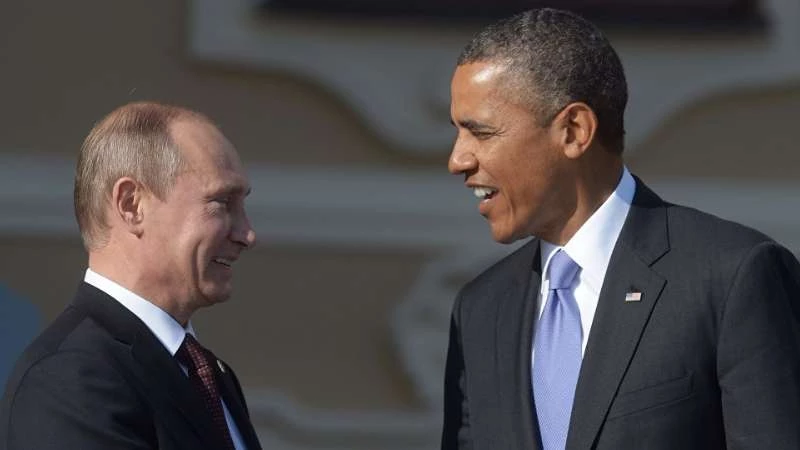Still, as Obama and Russian President Vladimir Putin attended an economic summit, the leaders were under pressure to push the negotiations beyond the sticking points that have thus far prevented a deal. Obama and Putin were expected to meet briefly Monday during a summit of the Group of 20 nations.
A second day of talks in China between Secretary of State John Kerry and his Russian counterpart, Sergey Lavrov, ended Monday without a deal to announce. The two diplomats met for an hour but emerged still at odds on certain issues, said a senior State Department official, who wasn’t authorized to discuss the talks by name and requested anonymity.
The talks culminated a several weeks of searching for a cease-fire between Assad’s regime and moderate opposition that would expand access for hundreds of thousands of civilians caught in the crossfire. The strategy has hinged on an unlikely U.S.-Russian militarily partnership against extremist groups operating in Syria.
"We’re not there yet," Obama told reporters Sunday. "It’s premature for us to say that there is a clear path forward, but there is the possibility at least for us to make some progress on that front."
Obama’s wariness was less apparent among his State Department negotiators, who had been so hopeful a deal could come together while world leaders gathered in China that they scheduled a press conference and announced plans to brief reporters on the pact. Those plans deflated throughout the day, as both the briefing and the press conference were canceled. After an aide scrambled to remove the podium once intended for his bargaining partner, Kerry eventually announced there was no deal - standing alone.
"I’ve said all along we’re not going to rush," said Kerry, who has negotiated several failed truces with Russia in recent months.
Kerry said the two sides had worked through many technical issues but said the U.S. didn’t want to enter into an illegitimate agreement. In recent days, the State Department has said it only wants a nationwide cease-fire between Assad’s military and the opposition, and not another "cessation of hostilities" that is time-limited and only stops fighting in some cities and regions.
The talks faltered Sunday when Russia pulled back from agreement on issues the U.S. negotiators believed had been settled, the State Department official said.
The Syria conflict has killed as many as a half-million people since 2011 and caused millions of Syrians to flee their homes, contributing to a global migration crisis. Amid the chaos, IS has emerged as a global terror threat.
Kerry and Lavrov’s talks represent their third significant attempt since July to finalize a new U.S.-Russian military partnership that Moscow has long sought. The package would include provisions so aid can reach besieged areas of Syria and measures to prevent Assad regime from bombing areas where U.S.-backed opposition fighters are operating.



التعليقات (0)